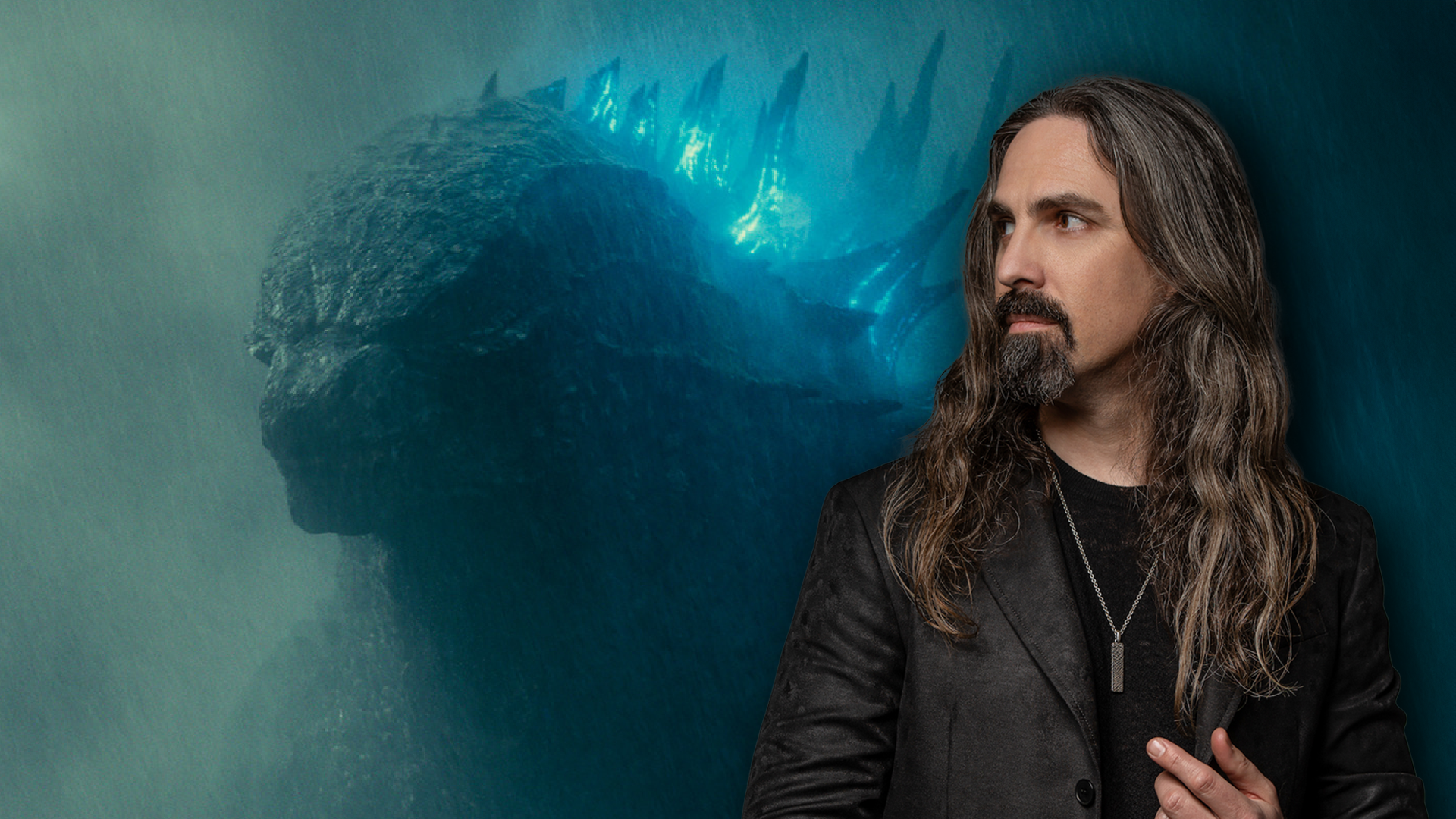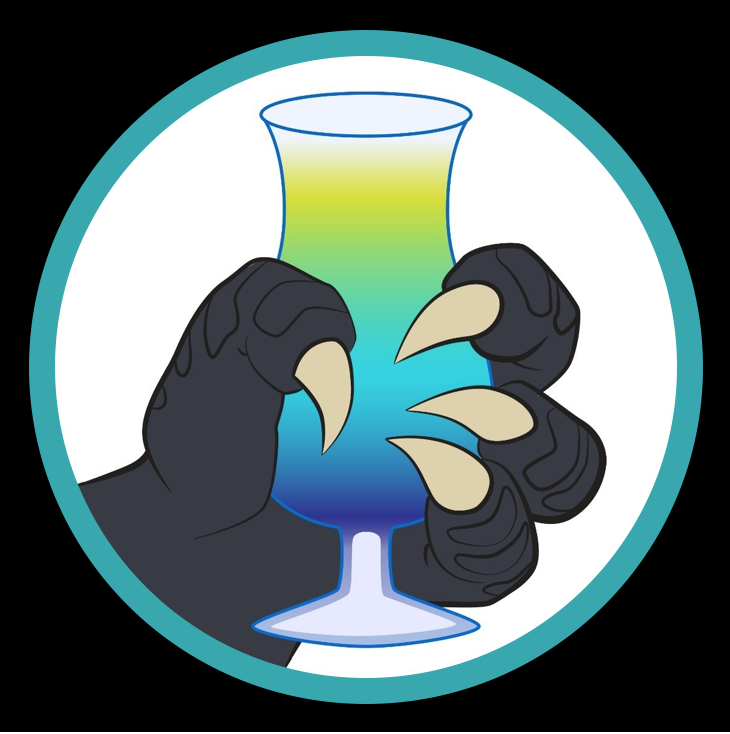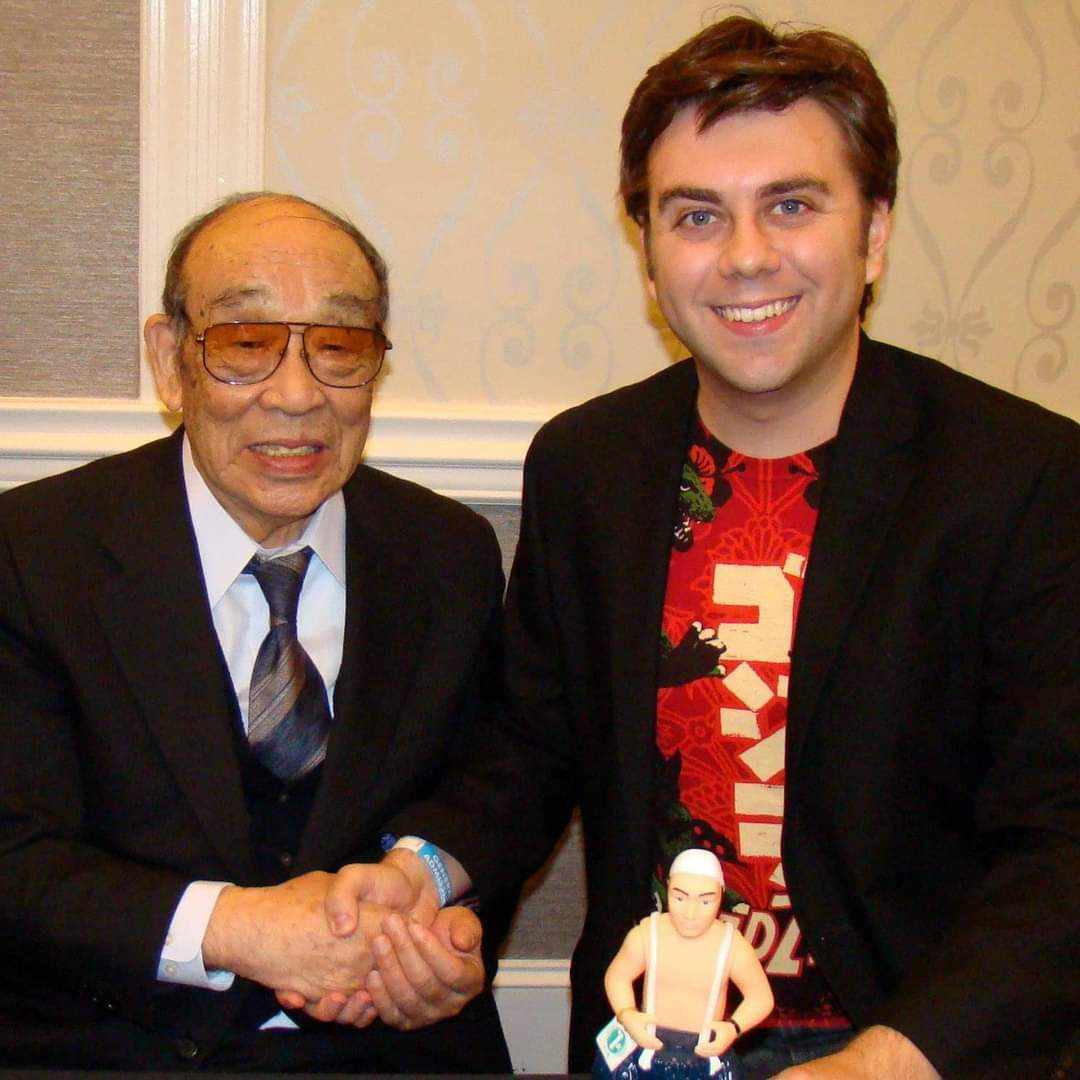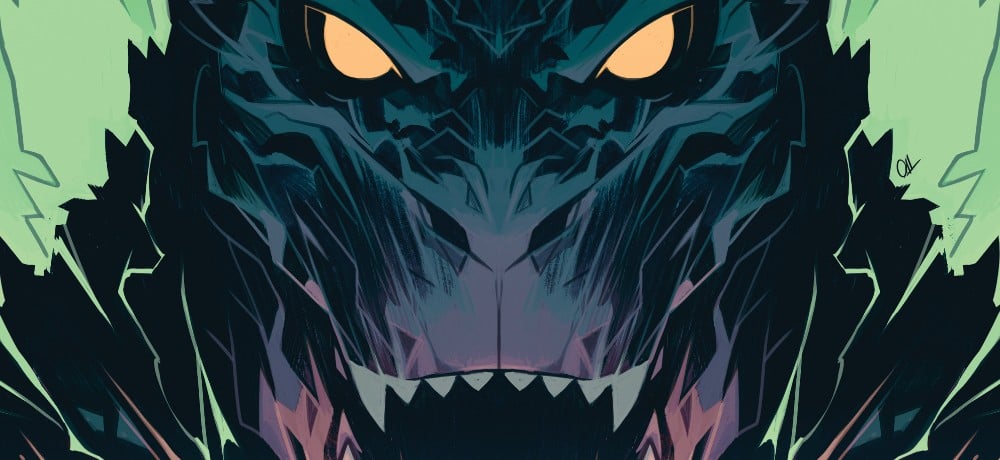New York Comic Con is in full swing, and everyone has flocked to the Javits Center in Midtown Manhattan to get the latest on all their favorite movies, shows, comics, and games. Fans will also get to experience meeting the large roster of special guests that have been invited to the convention this year. Among the star-studded lineup is composer Bear McCreary, who is known for scoring a wide variety of movies, video games, and TV shows such as The Walking Dead, God of War (2018), 10 Cloverfield Lane, and of course, Godzilla: King of the Monsters (2019). With an impressive resume that spans over 100 projects, it’s undeniable that Bear has, and continues to, leave his mark as one of the most influential composers of our time. Although he was at NYCC to promote his new solo album and graphic novel The Singularity, Bear was kind enough to take some time out of his busy weekend to briefly talk with us about his role in bringing the music for Godzilla: King of the Monsters to life.
Nick Crispino
Hello, Kaiju United! Nick Crispino here reporting from New York Comic Con, and we got a special one today. I’m sitting here with the legendary Bear McCreary, composer of 2019’s Godzilla: King of the Monsters. How are you, Bear?
Bear McCreary
I’m good, man. This is gonna be fun!
NC: Talk to me about recreating Akira Ifukube’s Godzilla and Mothra themes for Godzilla: King of the Monsters. Was it easier than making the other tracks given you had preexisting material to work with, or did they present their own set of unique challenges?
BM: Easier or harder are difficult words to describe to this process. When I came on board King of the Monsters… we have these primary characters – you have Godzilla, Mothra, Ghidorah, Rodan, and then the human characters, which are whatever. We care about them too, although now that I think about it, I did not. (laughs)
I wrote a theme, I think, for Monarch as an entity, but not the human characters. I was focusing on these four monsters, and the first thing I thought was to bring in as much of the classic music as it made sense, revisiting Akira Ifukube’s timeless music as a starting point. I also wrote original themes. I mean, really, it was sort of like an experimental process where I wrote a theme for Godzilla and then I wrote & arranged Ifukube’s march for Ghidorah. I wrote an original theme because I didn’t find any material in the canon that would tell the exact story we had. Because that was the challenge, right? It’s not just recreating the movies of the past. We have a very specific story we’re telling now, and I need the themes to do certain things.
Mothra obviously had the classic themes reworked, and with Rodan, there was some thematic material for that character. I ended up keeping my original material for Rodan & Ghidorah and keeping the classic material for Godzilla and Mothra. Once that decision was made. To go back to my starting statement, was it difficult? You’ve got one of the best pieces of film music ever written. Is it difficult to make that sound good? No, it’s just a matter of… you just do it, you know? And then the icing on the cake was then doing the Blue Oyster Cult song.
NC: That is a perfect segue into my next question. What led to the decision of getting Serj Tankian to do the vocals for your cover of BOC’s Godzilla?
BM: That was all me! I didn’t tell the producers, I didn’t tell the director, I didn’t tell the studio. I just did it. Serj [Tankian] and I have been friends for years beforehand. So, I called him up, and I said, hey, man, I want to do a cover of my favorite Blue Oyster Cult song, Godzilla, for this movie. Would you sing it?
I also reached out to my friend, Brendon Small, from Metalocalypse. I said, “Would you play on it? I want to get the guys from your record. I want to get Gene Hoglan on drums and Bryan Beller on bass, too.” I lined up all this stuff. And meanwhile, I’m supposed to be finishing the score to the movie!
We were coming down to the wire. I think if the producers knew I was working on anything other than finishing these cues, they would not have been happy, right? So I didn’t tell them. And the day before I get on the plane to go to London to record the score, we have our final cue review. Mike Dougherty was sitting next to me, and we were with all the Legendary & Warner Brothers execs in this crowded little screen room. We were looking at the final revisions…I think the scene right before the nuke goes off underwater, and there’s that beautiful cue. I rewrote that and a few other changes I made, and they were like, okay, great! They give me my final notes and signed off. Everybody starts to get up, and I go, oh, actually, guys, hang on. I forgot something. There’s one other thing I want to play. Sit down, sit down. And I go, I got this idea for the end credits. I hit play, and the wave file’s bar begins to drop. A second before it starts, Mike looks at me and goes, hey, that’s Blue Oyster Cult! Then, that iconic guitar riff hits. You know, the DUHHHH… BWAAA NAHHH NAHH NAHHHH… I get chills every time I tell the story. It’s fucking crazy! And then Serj’s voice comes in, and everyone’s like, what? The demo is basically what you heard in the finished film; I didn’t get any notes on that song.
Peter Afterman is the music supervisor for Legendary, great guy. I love this guy. He had to deal with all the licensing. We had to get a license from Toho; they had to grant us each usage of Godzilla, Mothra, and so on.
NC: Toho’s notoriously protective of Godzilla.
BM: Yeah, exactly. It wasn’t just like I had carte blanche. It’s more like when you order a drink at a bar. If they refill your drink, you’re paying for it again. So it’s like, every usage costs money. It’s not just a blanket sum and then you get to use it. That’s what was great about King of the Monsters. Toho, when they heard my demos, they were also like, okay, you can use it twice. Then it was like, but we want more! Can we use it? What about four times? Five times? Pretty please? As the demos came in, they were like, okay, that’s cool. But then they also had to clear the Blue Oyster Cult song that was written by this guy, Buck Dharma.
NC: The legendary Buck Dharma!
BM: Yes! The legend! So they cleared it, and the movie comes out. A couple of days later, I get a phone call. My assistant calls me, and she goes, “I have Buck Dharma on the line.” I go, “Stop messing with me!,” and immediately after she retorts, “No, I’m for real.” So, I pull the car over, and I’m like, hello…? It’s truly Buck on the phone, and he tells me how much he loved my version of Godzilla. Then he tells me that he had long given up hope. This song came out in 1977, it had been over 40 years old at this point. He had long given up hope that it would ever appear in a Godzilla movie, which it had never done, ever. My movie was the first mainstream Godzilla movie in the Western world to use Ifukube’s march, the Mothra Song, and it was the first time Blue Oyster Cult, with their hit song, Godzilla, ended up *in* Godzilla.
NC: That’s got to make you feel so good.
BM: I felt so good! Buck felt so good too – you could hear his gratitude over the phone. And in fact, every name I just listed – Bryan Beller, Brendon Small, Gene Hoglan, Serj Tankian, and Buck Dharma all ended up on my solo record, The Singularity, which was born from these sessions, the Godzilla sessions. I drove home the day I recorded that, and I was so buzzed. I was in the studio with Serj and Dethklok doing this incredible riff. And then honestly, after we were done, I started getting down. I started getting depressed. By the time I pulled into the driveway after driving home from the studio in Hollywood, I honestly was on the edge of tears. I was like, what? What’s wrong? I realized it had taken me 15 years of working in this business to find a movie that gave me the excuse to bring those people together. Would I have to wait another 15 years for that to ever happen again? I want to do a song again with Serj, Gene, and maybe bring on Buck Dharma. Like an epiphany, it suddenly hit me. What if I just wrote more songs? What if I don’t wait for a movie? That was the beginning of what became The Singularity.
NC: At Kaiju United, we are big on community. We asked the fans to submit some questions to ask you.
BM: Love it! Let’s do it!
NC: Derekofthedead26 asks…
If you could make the King of the Monsters soundtrack again, would you make any changes? And if so, what?
BM: Yes. My only regret, and it was just sadly out of my hands, was we could not use the Mothra Song’s lyrics. My solution to this was that I set our Mothra track in the same tempo and same key as the most famous recording, knowing that somebody on YouTube would put it together, which they did. It’s out there.
NC: It’s almost a certainty that fans will do that.
BM: What I’m saying is, I wanted you all to do that! That was because, as it turned out at the 11th hour, rights to the lyrics were just unavailable. When you’re digging into rights for music, it’s crazy town. You never understand how complicated it is. So that was one of those things.
I had a vocal track for Mothra’s Song recorded, but we couldn’t do it. So if I could do it again, easy, I would put in those lyrics. If I had an extra week to complete this, I would go searching. Who has those rights? Let’s do it! That was the one that got away, right? Thankfully, the fans came through. They fixed it. For me, they always come through. Godzilla fans, you always come through!
NC: jojorodriguez_2_5 asks…
Why do you think the Godzilla theme is so iconic?
BM: The Godzilla theme, to me, is in the same category as James Bond’s theme or Star Wars. It actually predates those themes. It is the first and arguably one of the most important cinematic universe themes that exists. It blows my mind that you would make a Godzilla movie without it. It’s like making a James Bond movie without his theme. The question is, how do you use that theme? Everybody who’s composed for the series has put their spin on it. Star Wars is an interesting example. Because of the influx of shows, they are deviating, I think, from what John Williams crafted in those movies. It’s up for debate whether you think that’s a good thing or not. But at the end of the day, if I have a say, we’re using that theme.
I think it’s interesting because it wasn’t always Godzilla’s theme. Originally, it’s the heroic theme in the original film and in Minus One. I’m sure it’s probably like that elsewhere too, but those two specifically spring to mind. It’s sort of a theme for either the military facing down Godzilla, or just sort of like the majesty of the situation. It’s not necessarily Godzilla’s theme. But, you know, for King of the Monsters, it was easy, because he’s the hero! He’s our boy! So you want to hear that. But full disclosure, I wrote a different theme, partly because I didn’t know if we would get it, so I had to be prepared, right? But the whole time I was like, please don’t make me use my theme. I wanna hear Ifukube theme. I wanna hear what everybody else wants to hear!
NC: All right, last one. It’s evident that the fans want you back. Out of all the questions we received, I’d say at least 90% of them were some variation of, “Would you return to score another MonsterVerse movie?” So, Bear, would you?
BM: I mean, sure, man! You guys got my number. I’m around.
NC: Bear, thank you so much for sitting down with us. We greatly appreciate it. This was one of Kaiju United’s dream interviews!
BM: Aw, thank you! I appreciate it.
Watch the full on-camera interview below:





